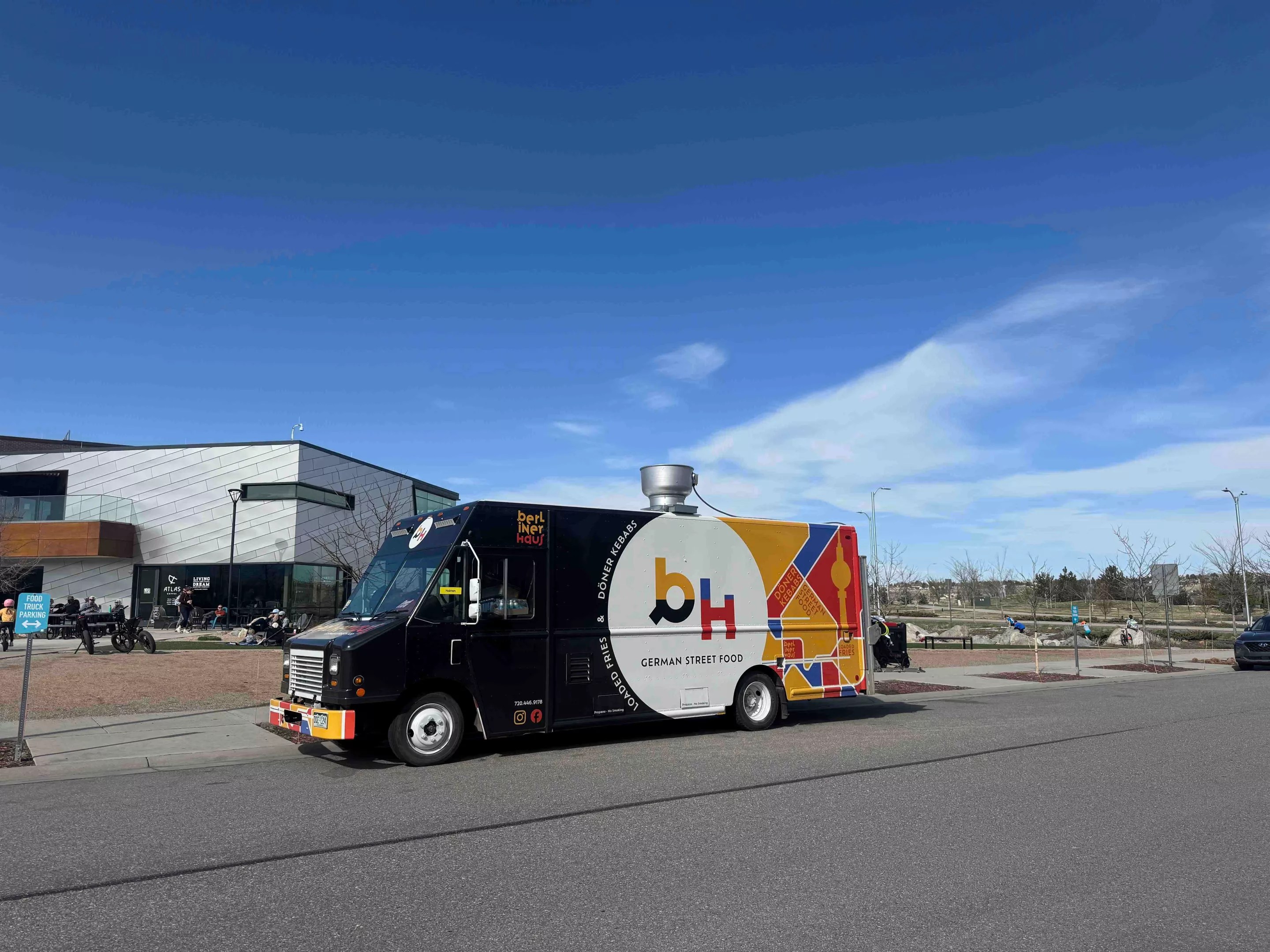
Berliner Haus

Audio By Carbonatix
Nikolas Diamantopoulos never imagined that his path from Athens to Colorado would lead to a food truck slinging doner kebabs. But in a Greek household, where meals are sacred and food is love, the culinary influence seeps in early and stays for life.
“My dad’s side of the family is from Greece. My mother grew up in the States, but her dad was from the Czech Republic, the Austro-Hungarian Empire side, kind of. So there were always ties to Central Europe. Even though I grew up in Greece, I’ve spent a lot of time in Central Europe as well. Hence why this kind of theme came together,” explains Diamantopoulos. “My dad was a huge cook, my mom and grandma cooked a lot, too. Greek families like to cook and eat. So, I grew up around people cooking.”
Although cooking was a constant in his upbringing, it wasn’t until he moved to Boulder for college and faced uninspired dining hall food that Diamantopoulos began experimenting in the kitchen. “The dorm food was not edible, and so I just started cooking at home. I kind of wanted to get into the food industry,” he says. With that newfound goal, Diamantopoulos spent years working in restaurants, bars and high-volume nightclubs. Eventually, though, life took him in a new direction, and he stepped away from the hospitality industry to venture into the home theater business. Still, he never fully let go of his ties to food and couldn’t shake the urge to do something on his own terms.
He found his way back to the food world through Denver’s Christkindlmarket, the German-themed holiday fair where he first tested the idea that would become Berliner Haus. “At the market, we started a booth doing doner kebabs,” Diamantopoulos says. The reactions from customers were immediate and enthusiastic. “People kept coming up being like, ‘When’s a brick-and-mortar? When’s a brick-and-mortar?’ And I’m like, I’m not doing a brick-and-mortar, but I might do a food truck so there’s something most of the year around,” he explains.
With this sudden explosion of followers, Diamantopoulos started to seriously consider the idea of a food truck. “Literally, the last day of the market, I thought, ‘Okay, this went well.’ I was going to take most of the winter off and do a few festivals here and there. And instead, I ended up going home for three days and then flew back. I had a buddy who was trying to sell a few trucks he had bought at an auction. … I was like, here’s the money. I’m just buying the truck and we’re making it happen,” he recalls.
After spending a couple of months building out the inside himself, he worked with a graphic designer to create a custom-designed wrap inspired by the Berlin Bauhaus aesthetic, a nod to the art and architecture style for which the city is known. With the concept and branding dialed in, Diamantopoulos officially launched Berliner Haus food truck this month at the First Friday event in the Art District on Santa Fe.
The star of the menu is the doner kebab, a beloved Berlin street food with Turkish roots. “Technically, it’s a Turkish dish, but it became popular in Germany in the ’60s and ’70s, and now it’s called a German doner kebab,” says Diamantopoulos. What makes it authentically German is the bread. “We use Ramadan Pide, which is a Turkish flatbread normally eaten during a certain time of year for Ramadan,” he adds. “They cut it into triangles and open it up. It turns into a pita pocket, only in bread. And this bread is characteristic of how they do it in Germany, specifically in Berlin. That’s where it started. We also have the durum wrap, which is more of a traditional Turkish version, and that’s become popular in Germany lately as well.”

The German doner sandwich is the specialty at Berliner Haus.
Berliner Haus
The sauces also play a key role in recreating an authentic Berlin-style doner. “There are two typical sauces, a white sauce and a red sauce. The white sauce is a garlic yogurt-based sauce, and the red sauce is a chili tomato, sweet and spicy sauce. It’s spicy. But if you mix them together, which most people do, it balances out nicely,” says Diamantopoulos.
For those seeking something easier to handle than the overloaded doner sandwich, Berliner Haus also offers doner boxes. “The doner box started more recently in Berlin because people were so drunk at night that they couldn’t even hold a sandwich to eat it,” he explains. “So they just started asking for all the components on a plate. … We’ve changed it slightly to appeal to the American base. We have a rice box, salad box, and loaded fries.” The truck also offers homemade baklava to satisfy a sweet tooth.
Although the food truck isn’t equipped with a spit because of health regulations, Diamantopoulos still prepares the meats the traditional way and has a clever trick to maintain freshness. “All our meats are cooked off-site on thousand-pound spits, shaved and then vacuum-sealed and loaded on the truck. Then we flash-heat on the truck to order, and it comes out just as if it was freshly shaved off the spit,” he says.
While Diamontopoulos plans to have the food truck primarily at festivals, he’ll carve out time for at least one or two public stops each week. He’ll have a booth at the South Pearl Farmers’ Market every Sunday during the season, too, and the truck will also make appearances at Civic Center Eats.
So if you’re craving a German-style doner, follow @coberlinerhaus on Instagram for the latest schedule and updates.